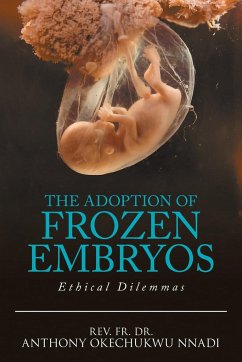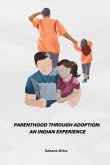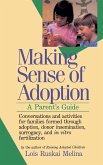This book discusses the ethical dilemmas relating to the use of frozen human embryos. During an IVF process, after fertilization of the eggs, the embryos that are not needed immediately can be placed in the freezer to be preserved for future use. Regarding the fate of frozen human embryos, the possibilities include: i) donating them for stem cell research or for treatment of disease; ii) using them as a means for treatment of infertility; iii) permitting their destruction; iv) allowing them to thaw and die; v) allowing them to continue to stay in the freezer and vi) utilizing them in a form of prenatal adoption. As the book reveals, it is only the proposal to adopt the embryos that can be considered in terms of moral permissibility because the rest do not respect and protect the dignity, integrity and life of the human embryo. The book focuses on the proposal for prenatal adoption. The anthropological dimension of adoption reveals that the ethics of adoption is based on gift and acceptance and that adoption is a concrete manner of expressing love and solidarity. Thus, an abandoned child is received with love to be permanently a member of the adoptive family. The husband and wife who did not beget the abandoned child, generate him/her through the intrinsic generative power of their love. With this, it was demonstrated in this book that prenatal adoption is compatible with the dynamic of adoption. Prenatal adoption as Dignitas personae reveals is praiseworthy because it protects and saves human lives, but it presents various problems. Based on the declarations of the Catholic Magisterium, there is a prolific Catholic debate on the morality of prenatal adoption. Some agree it is morally permissible, while others disagree. Most arguments in the Catholic debate are centred on whether prenatal adoption separates the unitive and procreative meanings of marriage. This book proposes a reconsideration of prenatal adoption, sticking strictly to the Magisterial prudential judgement.








